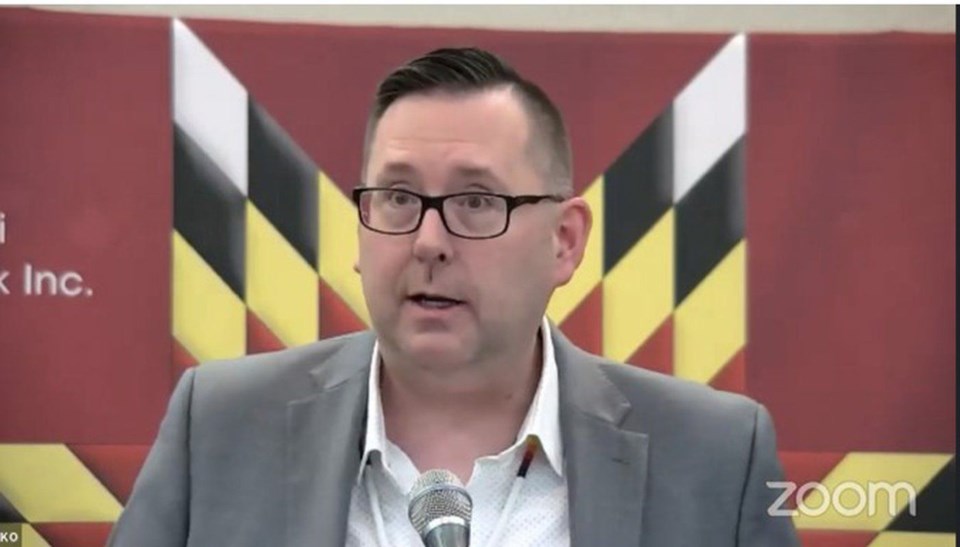The Manitoba RCMP’s newly appointed commanding officer told Indigenous leaders this week that he is fully committed to building and strengthening relationships in this province between northern and remote Indigenous communities, and the police officers and forces who serve those communities.
“We need to open up lines of communication on what we can do to improve our relationships, to ensure that people call the police when they need help, instead of being afraid of us,” RCMP D Division Commanding Officer Rob Hill said Aug. 24 while speaking at the Manitoba Keewatinowi Okimakanak annual general assembly.
Hill was named the D Division’s commanding officer on July 27, and he said that since taking on the role he has understood how important it is for RCMP officers and detachments to keep working on finding ways to build trust and build relationships in Northern Manitoba, and specifically with Indigenous people and communities.
He said one of the main ways the RCMP in the north are doing that is by increasingly asking Indigenous leaders and elders what they want to see out of the police forces that serve them.
“Ultimately everyone here has the same common goal, keeping your communities safe and secure for all residents, but we cannot do this alone,” Hill said.
“When it comes to establishing our policing priorities, consultation is key. We don’t police in a bubble, and there are no one-size-fits-all solutions.
“We cannot make decisions that affect you without you.”
Hill said he is now putting a strong emphasis on ensuring that all officers and new officers have a strong understanding of the backgrounds, cultures, and experiences that make up Indigenous communities.
“The needs of the communities are as diverse as the people that live there. Manitobans come from very different backgrounds, and very different lived experiences,” he said. “I know we can make improvements to better orientate new officers regarding the cultural makeup of this province.
“I truly believe that it is critical for all of our officers, including myself, to never stop learning about the cultures and histories of the people we serve and protect.”
Hill added he is now encouraging RCMP officers in Northern Manitoba and in all corners of the province to take part in traditional Indigenous events and ceremonies when they can, as a way to build their “cultural IQ.”
“We are encouraging officers to attend powwows, grand entries, sweat lodges, pipe ceremonies, feasts and other ceremonies whenever the RCMP is invited to participate,” he said.
According to Hill, RCMP officers have been spending more time and using more resources recently to travel to Northern Manitoba communities, as he said one of the best ways to build relationships is for RCMP to meet face to face with Indigenous leaders, elders and community members as much as possible.
“Travelling to each community has given the RCMP the opportunity to listen, to learn, and to set priorities based on feedback from elders and chiefs and council, and elders are now teaching officers about traditional Indigenous values that are unique to their communities,” Hill said.
He said he also wants officers to hear stories from elders, even if those stories are sometimes difficult to hear.
“We have had respected elders that have spoken candidly about their past experiences with police, and unfortunately many of the stories shared were negative,” Hill said.
“At times this is difficult to hear, but we acknowledge that it is necessary in order to heal and move forward.
“We must be open to listening.”
— Dave Baxter is a Local Journalism Initiative reporter who works out of the Winnipeg Sun. The Local Journalism Initiative is funded by the government of Canada.




